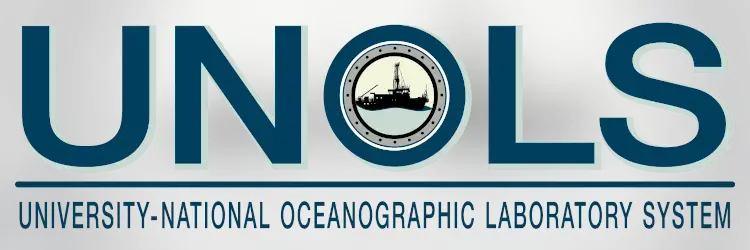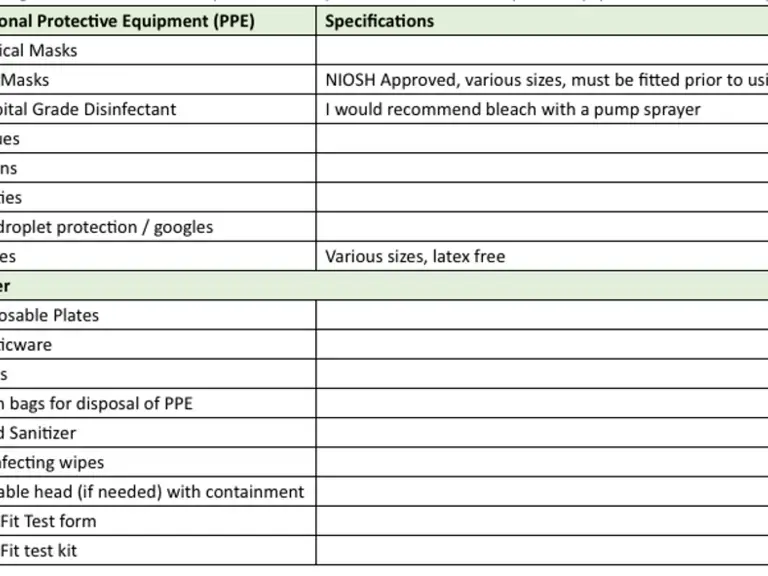
We are posting updates as we receive them. Links to the CDC, WHO, and other relevant maritime resources are below.
* As the coronavirus situation has changed some of the links may now be broken, especially references and resources from 2020.
UPDATE 21 June 2023
Updated UNOLS-COVID-19 GUIDANCE- 21June2023
UPDATE 23 May 2022
Updated UNOLS-COVID-19 Guidance - Vers. 1.3 - 23May2022
UPDATE 10 December 2021
Updated UNOLS COVID-19 Guidance - Vers. 1.8 - 10Dec2021
UPDATE 25 August 2021
Updated UNOLS COVID-19 Guidance - Vers. 1.7 - 25Aug2021
UPDATE 4 June 2021
Updated UNOLS COVID-19 Guidance - Vers. 1.3 - 4June2021
UPDATE 11 May 2021
Updated UNOLS COVID-19 Guidance - Vers. 1.0 - 11May2021
UPDATE 8 July 20
US Academic Research Fleet COVID-19 Return to Operations - FAQs
UPDATE 18 June 20
UPDATE 3 June 20
UPDATE 2Jun20
USCG Marine Safety Information Bulletin - Novel Coronavirus – MSIB Number: 02-20 (Change 5)
UPDATE 14May20
George Washington Medical Maritime Medical Access (GW-MMA) Coronavirus Guidance
UPDATE 29Apr20
USCG Marine Safety Information Bulletin - Novel Coronavirus – MSIB Number: 02-20 (Change 4)
UPDATE 15Apr20
UPDATE 06Apr20
UPDATE 03Apr20
Wilhemsen Ship Service: COVID-19 Global Port Restrictions Map
UPDATE 31Mar20
NSF - COVID-19 Information for the Geoscience Community
UPDATE 30Mar20
US ARF Revised Operations Plan to Manage Risks Associated with COVID-19 - EXTENDED
UPDATE 27Mar20
UPDATE 19Mar20
UPDATE 18Mar20
USCG Marine Safety Information Bulletin - Novel Coronavirus – Update (Change 3)
UPDATE 17Mar20
US ARF 30 Day Revised Operations Plan to Manage Risks Associated with COVID-19
After UNOLS Office consultation with the ARF vessel operators and Chief Scientists for cruises planned on UNOLS designated vessels for the next 30 days, and discussion within the UNOLS Council, UNOLS has recommended to NSF and ONR that a 30-day revised plan of vessel activities be implemented. During this time, we will continually monitor the situation and update as appropriate.
We recognize these are the immediate cruises that are impacted, but also recognize that downstream effects in scheduling will be inevitable.
There are several exceptions to the recommendation for this 30-day temporary pause in operations, either because ships are currently deployed or are so localized that a case-by-case approach may be considered.
Once the situation stabilizes and we see a path forward to re-start research vessel operations safely, then rescheduling of lost work will commence.
The current status of the U.S. Academic Fleet and UNOLS recommendations for activities is captured in the document https://www.unols.org/sites/default/files/US_ARF_Corona_Virus_30day_Revised_Plan.pdf
UPDATE 12Mar20
GWMMA, the fleet's telemedicine provider put out updated guidance. They wrote:
"This is complicated and health care systems (and countries) are struggling with the best way to minimize the impact of this disease. The coronavirus is proving to be difficult to contain and control worldwide. While there is no perfect way to prevent the transmission of this highly infectious disease, we would offer the following general guidance:
Prevention
- Practice good hand hygiene with frequent and sufficiently long handwashing (see https://www.cdc.gov/coronavirus/2019-ncov/about/prevention.html* for further guidance)
- Ensure all surfaces, especially hard surfaces, are cleaned frequently with approved bleach, alcohol, or peroxide based solutions (see https://www.cdc.gov/coronavirus/2019-ncov/community/home/cleaning-disinfection.html* for further guidance)
- Ensure that hand sanitizer is available throughout the vessel to make it easy to clean hands
- Consider a 14-day shoreside quarantine period before allowing an individual onboard. Coronaviruses similar to this have been found to have a 14-day incubation period (the time period with which the disease can be spread while a patient is not showing symptoms). This is challenging because a.) the quarantine period is difficult to comply with, and b.) most of your scientists will need to fly to reach you
- If interacting with individuals during the transfer of materials to the vessels, ensure you are wearing a mask and gloves at a minimum, eliminating handshaking and physical contact. Any supplies brought on board should be disinfected as best possible. We believe the virus can live on surfaces for up to 9 days.
If crewmembers become ill with fever/flulike symptoms/cough/shortness of breath:
- Isolate them immediately in their cabin if at all possible, wearing masks and gloves if they need to move about the ship for any reason
- Contact GW Maritime Medical Access for further advice
Regarding test kits:
- Testing kits require a designated person to perform the test and a designated shoreside laboratory which can perform the test. Because the test takes days to result, its use is very limited. Theoretical benefits of testing are 1.) making sure that arriving crew and scientists (who will be embarking on the ship) are free of the virus, and 2.) testing people who become symptomatic while on board. Testing will not likely provide you answers in a timely fashion nor aid to in decision making. Prevention measures and isolation of sick scientists and crew are the best measures to keep people safe."
ORIGINAL POSTING
UNOLS Update on Coronavirus (COVID-19) and Considerations for Operators and Scientists
The Coronavirus (COVID-19) outbreak continues to expand and is now a serious world-wide issue. Guidelines for addressing this important issue continue to evolve in the face of this rapidly expanding challenge. UNOLS has reached out to the George Washington Medical Faculty Associates (GW MFA) for guidance on how to best address the issue for the UNOLS operators as well as the science parties that deploy on the ships of the Academic Research Fleet (ARF). GW MFA is the medical support provider to the UNOLS designated ships of the ARF. The attached document provides their guidance.
The World Health Organization has released guidance for operational consdierations for managing COVID-19 cases and outbreaks on board ships. That guidance is available at: https://www.who.int/publications-detail/operational-considerations-for-managing-covid-19-cases-outbreak-on-board-ships
UNOLS Operators and Scientists planning to go to sea onboard ARF vessels for funded science cruises are highly encouraged to stay well aware of the latest developments with COVID-19 and the evolving guidelines for dealing with it. There are a number of on-line resources that are helpful in understanding how the outbreak continues to evolve and how to best prepare for issues related to the outbreak. These resources include:
- FAQs About the Coronavirus Disease 2019 (COVID-19) for National Science Foundation (NSF) Proposers and Awardees
- WHO - Operational considerations for managing COVID-19 cases and outbreaks on board ships
- Center for Disease Control (CDC)
- National Institutes of Health COVID-19 resources
- World Health Organization Daily COVID-19 Situation Reports
- Marine Executive
- U.S. Coast Guard Marine Safety Information Bulletin 02-30 (Update 3)
In addition to the GW MFA UNOLS recommendations UNOLS Operators and Science Party members shall follow the following guidance:
- In concert with the current guidance from the International Maritime Health Association, do not restrict embarkation or disembarkation of mariners and scientists in non-affected ports. However, crewmembers and science party members shall notify the vessel Master if you have traveled internationally in the past 14 days (stating where you travelled). Also please notify the Captain if you have been in contact in the past 14 days with someone with a confirmed or suspected COVID-19 case.
- Ships crew and science party members shall notify the vessel Master if you have been in contact in the past 14 days with someone with a confirmed or suspected COVID-19 case.
- Consider a 14-day shoreside quarantine period before allowing an individual onboard. Coronaviruses similar to this have been found to have a 14-day incubation period (the time period with which the disease can be spread while a patient is not showing symptoms)
- In considering whether it is acceptable for someone to embark on a cruise aboard an ARF vessel, UNOLS Operators shall consider following CDC's COVID-19 Risk Assessment and Public Health Management Decision Making guidance (link noted above). Personnel who are identified as Medium or High Risk shall not embark onboard an ARF vessel.
- If any personnel embarked on a UNOLS vessel show flu-like symptoms they shall notify the ship's Master immediately. The ship's Master or Medical Officer shall contact GW MFA immediately to seek medical guidance.
- GW MFA recommends UNOLS Vessel Operators provision vessels with the following supplies as a preparatory step in amounts operators deem appropriate for the various research vessel types and missions:
